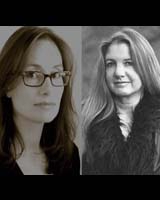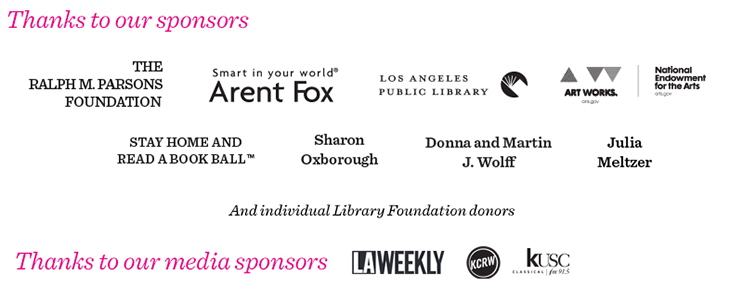
The struggles of an artist’s life are re-examined through a modern urban lens by these two critically acclaimed novelists. In Spiotta’s Stone Arabia, a fifty-year-old musician sinks away from public life until his niece begins to make a film about him, bringing many vulnerabilities to the surface. Fitch’s Paint it Black unravels the painful aftermath of the suicide of the son of a renowned pianist. Both novels, set in Los Angeles, vibrantly depict characters who are inspired and destroyed by music—and question the consequences of being an artist.
Dana Spiotta’s most recent novel is Stone Arabia, a National Book Critics Circle Award Finalist and a New York Times Notable Book of the Year. Her previous novels are Eat the Document, which was a National Book Award Finalist, and Lighting Field, which was a Los Angeles Times Best Book of the West. Spiotta is a recipient of a Guggenheim Fellowship, a New York Foundation for the Arts Fellowship, and she received the 2008 Rome Prize from The American Academy of Arts and Letters.
Janet Fitch is the author of the Los Angeles novels Paint It Black and White Oleander. Her short stories have appeared in such anthologies and journals as Black Clock, Room of One's Own, and Los Angeles Noir. She teaches creative writing in the Master of Professional Writing program at USC, and at the Squaw Valley Community of Writers. A contributing editor to the Los Angeles Review of Books, Fitch is currently working on a novel set during the Russian Revolution.
Carolyn Kellogg is an award-winning staff writer at the Los Angeles Times, where she writes book reviews and covers the publishing world. Her writing has appeared in Black Clock, the anthology The Devil’s Punchbowl and Skateboarding Magazine. She recently wrote the Poets & Writers guide to literary Los Angeles and is the former editor of LAist.com. Carolyn is a board member of the National Book Critics Circle.
